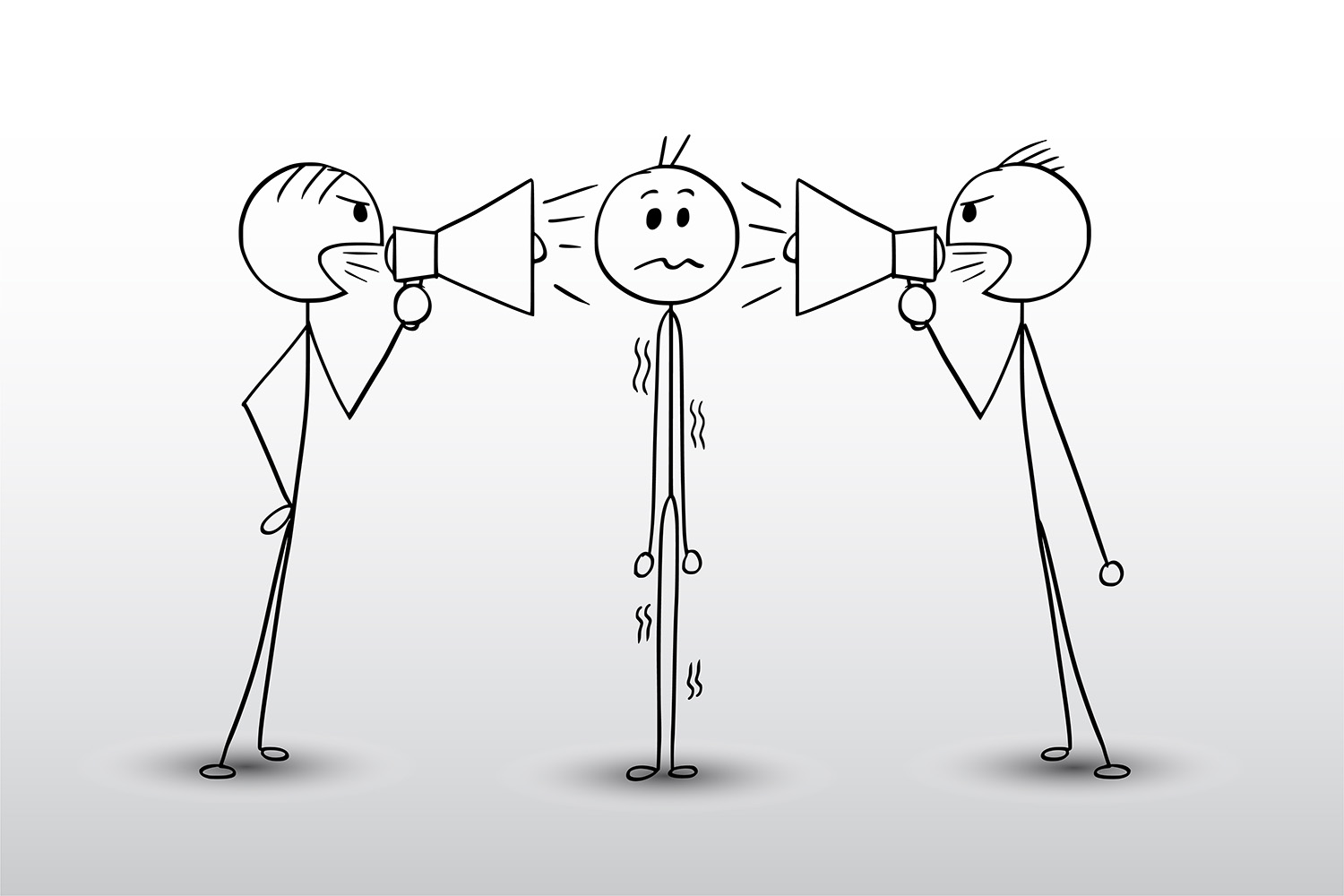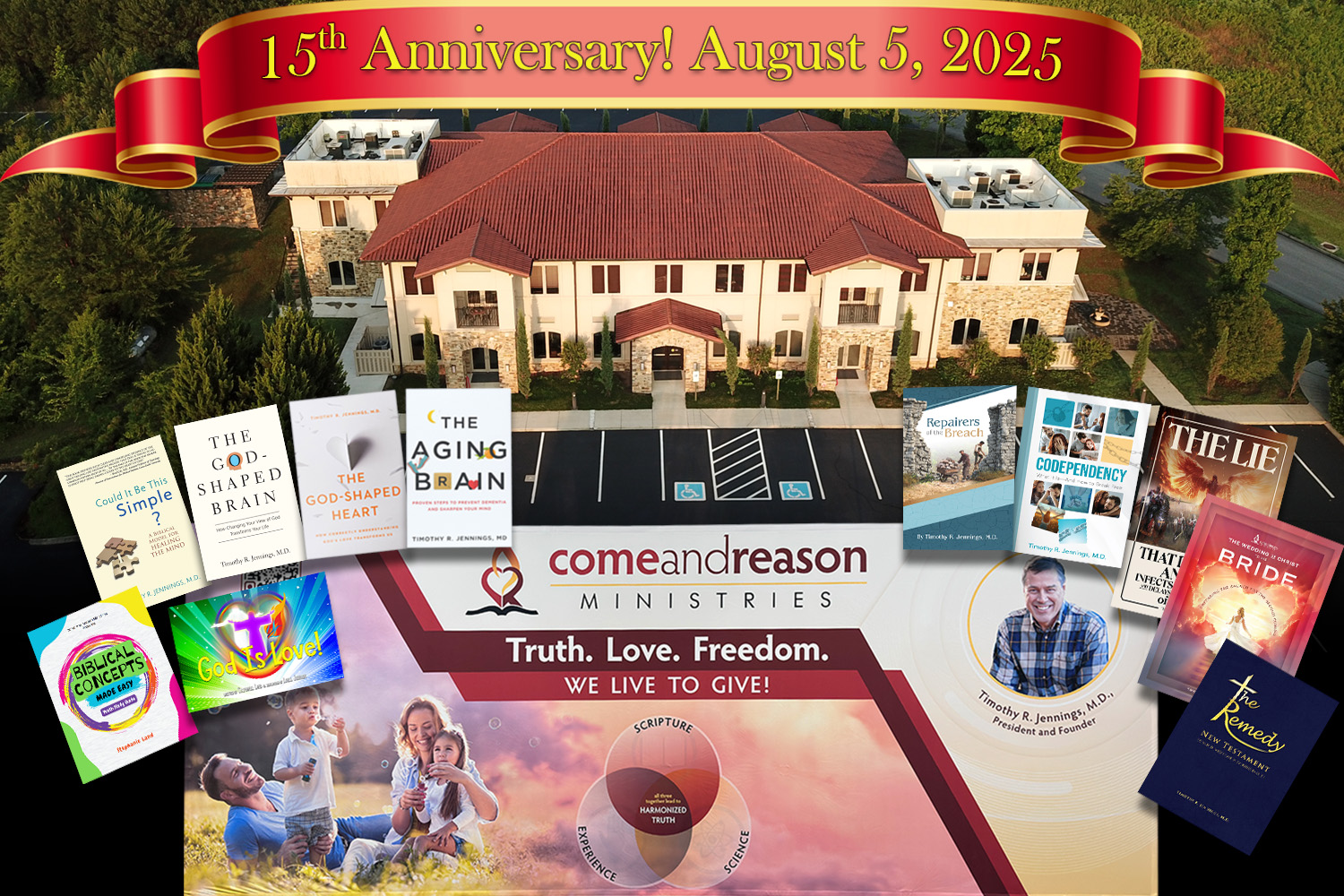Almost everyone agrees that lying, deceiving others, is not a virtueŌĆöand is, in fact, wrong. Even politicians, whom, according to polls, the majority of people believe lie, constantly accuse their opponents of lying. They make such accusations because lying is not viewed as a virtue, but as exploitive, as a method of manipulation and trickery used to take advantage of others.
Because of this, people will often automatically associate the telling of falsehoods, the spreading of lies, with being the exclusive domain of a dishonest person. But it isnŌĆÖt that simple. In fact, it is often much more effective for the cause of evil when the lie is spread by honest people, not dishonest people.
What is the difference between an honest and dishonest person if they are both telling the same falsehood?
The dishonest person knows what they are saying is false, and they tell it with the intention to deceive; they actively and willfully seek to hide the truth. However, the honest person who is spreading something false doesnŌĆÖt know what they are saying is false. They actually believe the lie to be a truth; if they understood it was false, they would stop spreading it.
But despite their good intentions, the honest in heart who believe falsehoods can do terrible damage to GodŌĆÖs kingdom precisely because they are acting on pure motives, often with altruistic desires. Because of the good intentions and pure motives, the honest in heart are perceived to be sincere, altruistic, and caring and, therefore, are often able to persuade people to believe the lie that they are convinced is true and, thus, advance the kingdom of darkness. The lie that comes from someone who is genuine, compassionate, and caring is often more damaging than the lie that comes from the liars.
This is why the Bible teaches we are not to surrender our thinking to others, that we are to individually grow up into mature Christians who have the mind of Christ, who reason and think for ourselves. We are not to believe something based solely on the testimony of others, but we are to hear that testimony and then test it by the Integrative Evidence-Based Approach, which harmonizes the Word of God, life experience, and GodŌĆÖs testable laws built into realityŌĆöHis design lawsŌĆöand be fully persuaded in our own minds (Romans 14:5). We are to develop within ourselves the ability to discern right from wrong (Hebrews 5:14).
An example of honest people telling lies: a child whose parent tells them they have gone shopping when, in fact, the parent is out committing a crime. When the child is asked where their parent is, they answer honestly, ŌĆ£They are out shopping.ŌĆØ The child is not lying; i.e., choosing to bear false witnessŌĆöbut the child is also not communicating truth.
One example from history is religious leaders who sincerely teach false doctrines because they themselves believe the falsehood. This is described in the book The Great Controversy in a section discussing the commonly taught myth of a torturing god who burns people in hell for all eternity:
How repugnant to every emotion of love and mercy, and even to our sense of justice, is the doctrine that the wicked dead are tormented with fire and brimstone in an eternally burning hell; that for the sins of a brief earthly life they are to suffer torture as long as God shall live. Yet this doctrine has been widely taught and is still embodied in many of the creeds of Christendom. Said a learned doctor of divinity: ŌĆ£The sight of hell torments will exalt the happiness of the saints forever. When they see others who are of the same nature and born under the same circumstances, plunged in such misery, and they so distinguished, it will make them sensible of how happy they are.ŌĆØ ŌĆ” Where, in the pages of GodŌĆÖs word, is such teaching to be found? Will the redeemed in heaven be lost to all emotions of pity and compassion, and even to feelings of common humanity? Are these to be exchanged for the indifference of the stoic or the cruelty of the savage? No, no; such is not the teaching of the Book of God. Those who present the views expressed in the quotations given above may be learned and even honest men, but they are deluded by the sophistry of Satan. He leads them to misconstrue strong expressions of Scripture, giving to the language the coloring of bitterness and malignity which pertains to himself, but not to our Creator. ŌĆ£As I live, saith the Lord God, I have no pleasure in the death of the wicked; but that the wicked turn from his way and live: turn ye, turn ye from your evil ways; for why will ye die?ŌĆØ Ezekiel 33:11 (p. 535, emphasis mine).
Other examples in our society today include all the honest-hearted people telling us that mask-wearing stops the spread of viruses, a proven falsehood; that life arose on its own through random and chaotic forces, another proven falsehood (see our blog Modern Science Upends The Scopes Monkey Trial Verdict); that GodŌĆÖs law functions like human law; and that natural disasters are acts of God to punish sin.
This is exactly why every person must learn to think and reason for themselves and not trust their souls, what they believe, to their friends, parents, teachers, celebrities, political leaders, news outlets, scientists, pastors, priests, elders, popes, church committees, or church traditions.
The honest in heart who spread falsehoods, like the child telling what she thought was true about where her parent was, are not injuring their souls by telling what they believe to be the truth. In other words, they are not sinning; they will not be lost because of it. However, what is told, taught, or spread to others does not benefit them; it does not work to bring healing or salvation to others, because it is false. In the example of the child saying that their parent is shopping, the person who believes this and goes to the store to find the parent will not find the parent there, for the parent is not there. While the child is not harmed in their soul by telling what they believe is true, the person following their direction cannot get the outcome they are looking for from false information.
Thus, those who honestly tell falsehoods about the gospel, salvation, and God because they have not yet understood the truth may not be damaging their own souls, but they are not able to lead others to a mature Christian experience. This is described by the apostle Paul in 1 Corinthians 3:
For no one can lay any foundation other than the one already laid, which is Jesus Christ. If any man builds on this foundation using gold, silver, costly stones, wood, hay or straw, his work will be shown for what it is, because the Day will bring it to light. It will be revealed with fire, and the fire will test the quality of each manŌĆÖs work. If what he has built survives, he will receive his reward. If it is burned up, he will suffer loss; he himself will be saved, but only as one escaping through the flames (vv. 11ŌĆō15 NIV84).
If we surrender our heart to Jesus and are reborn to love Him and then begin teaching things that are true, we build with gold and silver and costly stones. But if we believe lies and teach people things that are untrue, even sincerely, we build with wood, hay, and strawŌĆöand while we are not damaging our souls by spreading falsehoods that we believe are true, because what we are building is false, it will not stand but will be destroyed in the light (fires) of truth and love.
┬Ā
Loving the Truth
The righteous are those who are lovers of truthŌĆöthey are not the ones who know all truth, for only God is infinite and knows all truth. The righteous are those who love truth, meaning they hunger for truth, they eagerly seek to grow in the truth, they have hearts and minds that are open to being corrected, updated, and advanced by unfolding truth. (This is what it means to be obedient. The Greek word for obedience means a humble willingness to listen and follow, to be taught and corrected.) They do not lock in on doctrines, creeds, or fundamental beliefs and refuse advancing light and truth as GodŌĆÖs messengers bring it.
The lost, however, love their doctrines, their creeds, their religions, their fundamental beliefs, and when new advancing light comes, they will not accept itŌĆöand this is often because they have never learned to think for themselves and, instead of understanding reality and truth, have formed their beliefs on what others whom they trust have told them. Sadly, it is then that the light they used to have becomes darkness in them.
And this leads us to differentiate the honest in heart from the liars in another wayŌĆöthe impact, progression, and outcome over time. The honest in heart are people who do love the truth and are seeking to learn, to develop, to grow, to assimilate truth, but as a finite being, they currently believe some things incorrectly and can spread those falsehoods with all goodwill. Yet, when the truth is presented to them in a way they can comprehend, they will replace their false belief with the truth and grow in the truth. They are humble of heart and mind and do not resist, reject, or fight against advancing truth. On the other hand, the dishonest are those, as described in 2 Thessalonians, who ŌĆ£perish because they refused to love the truth and so be savedŌĆØ (v. 2:10 NIV84). They may love their doctrines, creeds, church organizations, power, and position as a church leader, but they do not love the truth and when advancing truth is presented, they reject it in order to protect their current beliefs or doctrines. These are the ŌĆ£stiff-necked,ŌĆØ the ŌĆ£hard-hearted,ŌĆØ the ŌĆ£blindŌĆØ of the Bible. They are not lost because they believe something false, but because they refuse to believe truth when it is presented. And this refusal to believe truth and insistence on believing the lies, will, over time, destroy the faculties that recognize and respond to truth, and such a person becomes self-deceived and can come to believe that which they originally knew was false to be trueŌĆöthey become delusional. Thus, the dishonest can eventually come to believe their own lies and then can spread them with real sincerity. These sad souls are quite different from the honest in heart who may tell the same lie, for the honest in heart have not rejected the truth, have not destroyed their ability to discern the truth, and when they understand the truth, they will embrace and apply it to their lives.
These two classes are seen in the difference between Caiaphas and Saul of Tarsus. Both had truth presented to them. Caiaphas rejected it, hardened his heart, and came to believe what he knew was false, thereby destroying his soul. For a period of time, Saul was advancing falsehoods that he did not realize were false, but when presented with the truth, he rejected the false and embraced and applied the truth and became a new man, a righteous champion of Jesus Christ.
So I challenge you to be a thinker, to exercise the abilities God has given you that make you in His image, to think for yourself, understand for yourself, examine the evidence God has given for yourself, and to honestly consider perspectives that differ from your own, but only believe when you have examined those perspectives in light of GodŌĆÖs revealed truths as He has given us in Scripture, in nature, and lifeŌĆÖs experiencesŌĆöThe Integrative Evidence-Based Approach.
┬Ā
┬Ā









 using your credit or debit card (no PayPal account needed, unless you want to set up a monthly, recurring payment).
using your credit or debit card (no PayPal account needed, unless you want to set up a monthly, recurring payment). instead?
instead?